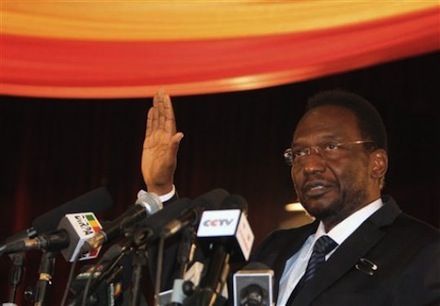Although Greek elections have only this week been set for May 6, speculation is already rising that the vote will result in no viable coalition.![]()
The two traditional parties of Greek politics since 1974 have been the center-right’s New Democracy (Νέα Δημοκρατία) and the center-left’s Panhellenic Socialist Movement (Πανελλήνιο Σοσιαλιστικό Κίνημα), or PASOK. But polls leading up to the legislative elections, however, show that the Greek two-party system appears to have all but broken down in the face of voter disgust with both New Democracy and PASOK, which both supported the ‘troika’ bailout from the European Central Bank, the European Commission and the International Monetary Fund, along with the accompanying reforms and budget cuts, none of which has been popular among Greek voters, to put it mildly.
Polls also suggest that no single party commands much over 20% in support and accordingly, up to nine discrete political parties could enter the Hellenic Parliament after May 6. That includes New Democracy and PASOK, but also KKE (the Greek Communist Party), SYRIZA (the Coalition of the Radical Left), the Democratic Left, the Ecologist Greens, the Independent Greeks (a center-right anti-austerity group), Golden Dawn (a neo-fascist, neo-nazi party) and LAOS (a right-wing Orthodox party) — the Greek electoral process provides that any party with over 3% of the national vote will be represented with seats.
But what are the potential combinations of coalitions? And more to the point, what is the likelihood that any such coalition can come to agreement to form a government? Continue reading A guide to potential Greek coalitions (or, how we might end up with a second election)
